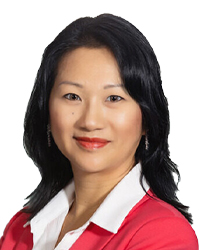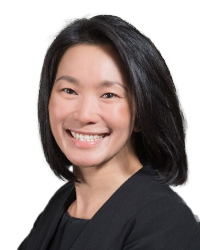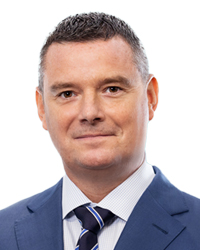Why is the Cayman Islands drawing two-thirds of Japanese investment in overseas funds?
Q: What are the latest trends in Asian investment funds that use offshore vehicles, and what are the key legal benefits?
The primary drivers behind the use of Cayman investment funds over other jurisdictions include their flexibility, investor familiarity and the jurisdiction being highly regarded. This is coupled with the certainty of a sound legal system. Additionally, the Cayman Islands is a tax-neutral jurisdiction and this provides users of Cayman Islands structures with the comfort of knowing that there are no forms of relevant taxation in the Cayman Islands that are applicable to their structures.

Head of Asia Funds & Investment Management practice
Tel: +852 3690 7475
Email: ann.ng@maples.com
Japan continues to be an extensive user of Cayman Islands funds. According to the Japan Ministry of Finance’s end of 2022 figures for regional portfolio investment, the Cayman Islands attracts more than two-thirds (67.3%) of Japanese investment in overseas investment funds. Japan is the second-most important source of portfolio investments for the Cayman Islands with USD779 billion in assets, trailing only the US, which had USD2.59 trillion in assets invested in Cayman investment vehicles in June 2022, according to data reported to the International Monetary Fund (IMF).
In terms of key trends in the Japanese market, we are witnessing increasing allocations by Japanese investors to private equity, venture capital, private credit and other alternative investments. One of the key drivers behind this trend is the search for better yields.
Historically, Japanese pension funds, life insurance companies, mega banks and regional banks have tended to invest predominantly in Japanese yen (JPY) government bonds. However, as a result of “Abenomics” (the economic policies of former prime minister Shinzo Abe’s second term), as well as the Japanese government’s continued yield curve control programme, these no longer provide the necessary returns.
This has caused a rebalancing of portfolios. The Government Pension Investment Fund and Japan Post Bank are two of the most well-known institutional investors that have followed this trend, and they are emblematic of a broader shift in the market.
This shift into alternative investments has led to the development of a new type of investment vehicle – private equity unit trusts – now being used extensively by many Japanese investors.
It has also led to non-traditional PE houses like security houses and mega banks moving into the alternative funds space. Some are setting up alternative investment arms to focus on fundraising both domestically and internationally.

Partner
Asia Funds & Investment Management
MAPLES GROUP
Tel: +852 2971 3079
Email: Sharon.yap@maples.com
The author is also seeing an increasing number of domestic Japanese PE and VC fund managers, which have been very successful in raising JPY funds, now keen to also raise money from international investors. The Cayman Islands and the Cayman exempted limited partnership remain the jurisdiction and structure of choice for raising such funds.
Finally, with a rapidly ageing population, many Japanese conglomerates and businesses are facing succession issues. This has forced a number of businesses to look beyond Japan for buyers of their businesses. We are seeing that large conglomerates have started selling off their non-core businesses. The weaker yen in recent years has made Japan an attractive target for buy-out opportunities. The author has seen an increase in investment funds raised to take advantage of these investment opportunities, and the use of Cayman Islands funds, for the aggregation of funds to make such investments.
There has also been an uptick in activity in Korea in the private equity funds space. Not dissimilar to Japan, there is an increasing number of Korean fund managers that have been very successful in raising domestic Korean won (KRW) denominated funds. Armed with a successful track record, a number of these Korean fund managers are now keen to raise money from international investors, and the Cayman exempted limited partnership remains the gold standard in jurisdiction and structure of choice for these USD funds.
Q: What are the legal considerations in terms of tax and anti-money laundering for Asian investment funds when using offshore vehicles?
The Cayman Islands was an early introducer of comprehensive and strict anti-money laundering laws and know your customer (KYC) rules and regulations, which are equivalent to those of established OECD member states. The Financial Action Task Force (FATF) sets the global standard for fighting money laundering and terrorist financing. Cayman has been assessed as “highly compliant”, satisfying all 40 of the FATF’s recommendations. It is more compliant than many OECD member jurisdictions.

Partner
Japanese Funds Practice
MAPLES GROUP
Tel: +65 6922 8424
Email: Nick.harrold@maples.com
The country was also an early adopter of the Foreign Account Tax Compliance Act and the OECD’s Common Reporting Standard (CRS), so that tax information on investors is now exchanged with more than 100 other countries.
On 23 June 2023, the FATF also confirmed that the Cayman Islands had a robust and effective anti-money laundering/counter-terrorist financing regime. As such, it is anticipated the Cayman Islands will be removed from the FATF’s monitoring list at its October 2023 plenary. It is further expected that the de-listing will trigger the jurisdiction’s removal from the EU’s AML/CFT list in due course.
Q: What legal frameworks exist for dispute resolution between offshore entities and Asian investment funds?
The Cayman Islands courts are well-equipped to deal with investment fund-related litigation. This takes a number of forms, including winding-up petitions (and subsequent court-supervised fund wind-downs and restructurings), claims involving former directors and service providers, claw-back actions, and suits by disgruntled investors.
The prominence and large number of investment funds incorporated in the Cayman Islands means that fund-related disputes occupy a significant proportion of the diet of the Financial Services Division of the Cayman Islands Grand Court. In turn, this means that Cayman Islands judges have a high degree of familiarity with fund structures and the issues that arise in connection with them.
Public company merger dissent actions have also become a significant feature of the Cayman Islands litigation landscape. That has, in part, been driven by investment funds that have embarked upon a merger arbitrage strategy, investing in listed companies ahead of their privatisations with a view to exercising dissent rights under Cayman Islands law. Many of those listed companies have Asian-based businesses and investors.
In the author’s experience, court proceedings are seen more frequently than arbitration in Cayman Islands law-governed fund documents. Even when parties in investment fund structures do agree to arbitration, the Cayman Islands is not commonly selected as the seat of that arbitration. However, Cayman Islands courts play a supportive role to facilitate arbitration procedures and will generally recognise and enforce foreign arbitral awards made in any of the contracting states to the New York Convention, under the terms of the Convention.

MAPLES GROUP
Singapore
1 Raffles Place, #36-01
One Raffles Place
048616
Tel: +65 6922 8400
Fax: +65 6222 2236
Hong Kong
26th Floor, Central Plaza
18 Harbour Road
Wanchai
Tel: +852 2522 9333
Fax: +852 2537 2955
Email: info@maples.com
www.maples.com






























